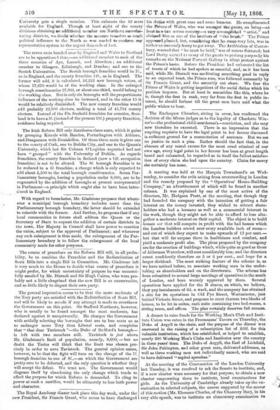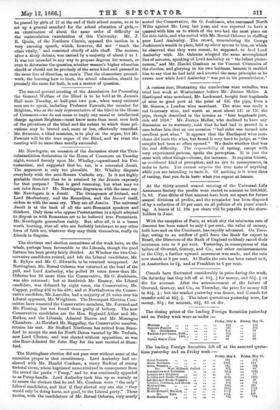At the meeting of the Convocation of the London University
last Tuesday, it was resolved to ask the Senate to institute, and, if a new charter were necessary for that purpose, to obtain a new charter empowering them to institute, local examinations for girls. As the University of Cambridge already takes up the ex- amination in selected subjects, the course suggested by the mover of this motion (Mr. Ebenezer Charles, of the Chancery Bar), in his very able speech, was to institute an elementary examination to be passed by girls of 17 at the end of their school course, so as to net up a general standard for the school education of girls,— an examination of about the same order of difficulty as the matriculation. examination of this University. Mr. J. R. Quoin, of the Northern Circuit, opposed the motion in a -very amusing speech, which, however, did isot "touch the -crisis vitally," and consisted chiefly of able chaff. The motion, after a sharp debate, was carried by a majority of about 2 to 1. It was not intended in any way to propose degrees for women, or even to determine the question whether women's higher education shoubl or should not be precisely of the same kind and pursued in the same line of direction, as men's.' That the elementary ground- • work, the learning how to learn, the school education, should be precisely the stone for both, is not a matter of question.































 Previous page
Previous page